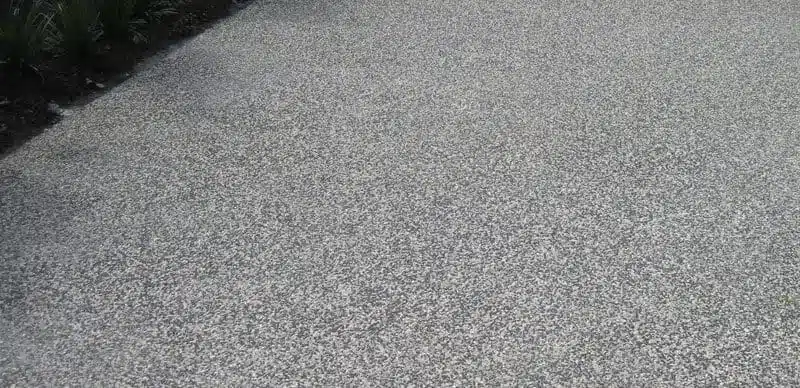Comprehensive Guide to Concrete: From Installation to Completing Touches
Comprehensive Guide to Concrete: From Installation to Completing Touches
Blog Article
Revealing the Eco-Friendly Advantages of Using Recycled Concrete in Sustainable Construction Practices
In the world of sustainable construction methods, the usage of recycled concrete stands as an essential yet typically undervalued source. Beyond its standard applications, recycled concrete offers a myriad of green advantages that expand far past the confines of traditional building products.
Environmental Benefits
By incorporating recycled concrete into building practices, there is a significant reduction in the requirement for new raw products, leading to conservation of all-natural resources. Furthermore, the use of recycled concrete reduces the amount of waste being sent out to landfills, therefore minimizing ecological contamination and alleviating the pressure on garbage dump abilities (Concrete).
:max_bytes(150000):strip_icc()/GettyImages-941748918-5c7f3654c9e77c00012f82f6.jpg)
In contrast, recycled concrete has a reduced carbon footprint as it lowers the demand for brand-new concrete production. Overall, the ecological benefits of utilizing recycled concrete are substantial and play a critical function in advertising environmentally friendly construction techniques.
Cost-Efficiency
When analyzing the usage of recycled concrete in construction tasks,Accomplishing cost-efficiency is a critical factor to consider. Among the essential benefits of making use of recycled concrete is its cost-effectiveness compared to standard concrete. The manufacturing of recycled concrete includes less power and sources as it uses existing materials, minimizing the general job expenses substantially. Furthermore, the availability of recycled concrete in your area can further reduce transport expenditures, making it an extra economical choice for building projects.
Furthermore, making use of recycled concrete can bring about savings in garbage dump expenses by diverting concrete waste from disposal sites. This not only minimizes the ecological influence yet additionally eliminates the expenses related to waste elimination. The sturdiness and performance of recycled concrete are similar to traditional concrete, ensuring that cost financial savings do not endanger the quality of the building and construction.
Toughness and Stamina
Taking into consideration the significant cost-efficiency benefits of utilizing recycled concrete, it is crucial to analyze its sturdiness and strength in building applications. Recycled concrete offers comparable, if not exceptional, sturdiness and stamina residential properties to standard concrete. With improvements in processing techniques and high quality control, recycled concrete can satisfy or surpass the efficiency requirements of conventional concrete. The procedure of reusing concrete involves crushing, arranging, and evaluating old concrete to produce aggregates that can be used in brand-new building projects. These recycled accumulations are qualified of giving satisfactory compressive strength, durability, and long-lasting performance.

Waste Decrease
Reliable waste decrease techniques play a vital duty in the sustainable usage of sources within visit homepage the building and construction industry. Waste reduction is an essential benefit that contributes substantially to ecological preservation when it comes to making use of recycled concrete. Traditional building techniques commonly create significant quantities of waste, particularly in the form of concrete rubble from demolition sites. By incorporating recycled concrete into building jobs, this waste is repurposed and drawn away from land fills, lowering the overall environmental effect of building activities.
Additionally, the usage of recycled concrete can lead to set you back savings for building and construction projects, as it is usually much more inexpensive than sourcing and moving brand-new materials - Concrete. In final thought, waste decrease through the use of recycled concrete is a vital element of lasting building and construction practices that benefits both the building and the setting industry as a whole.
Energy Preservation
When it comes my website to using recycled concrete in construction, significant power financial savings are accomplished compared to conventional concrete manufacturing. The process of creating recycled concrete includes crushing and reusing existing concrete products, which consumes less energy than mining, processing, and delivering raw products for brand-new concrete manufacturing.
Verdict
Finally, the use of recycled concrete in sustainable construction techniques provides many environmental advantages, cost-efficiency, sturdiness, stamina, waste decrease, and power conservation. By incorporating recycled concrete right into building and construction jobs, we can add to a more ecologically friendly and lasting future. It is essential for the construction sector to prioritize using recycled products to help in reducing the ecological influence of building and construction activities.
One of the essential benefits of making use of recycled concrete is its cost-effectiveness contrasted to traditional concrete.Furthermore, the use of recycled concrete can lead to financial savings in landfill prices by diverting concrete waste from disposal websites. The durability and performance of recycled concrete are comparable to standard concrete, guaranteeing that expense savings visit homepage do not jeopardize the high quality of the building.

Report this page